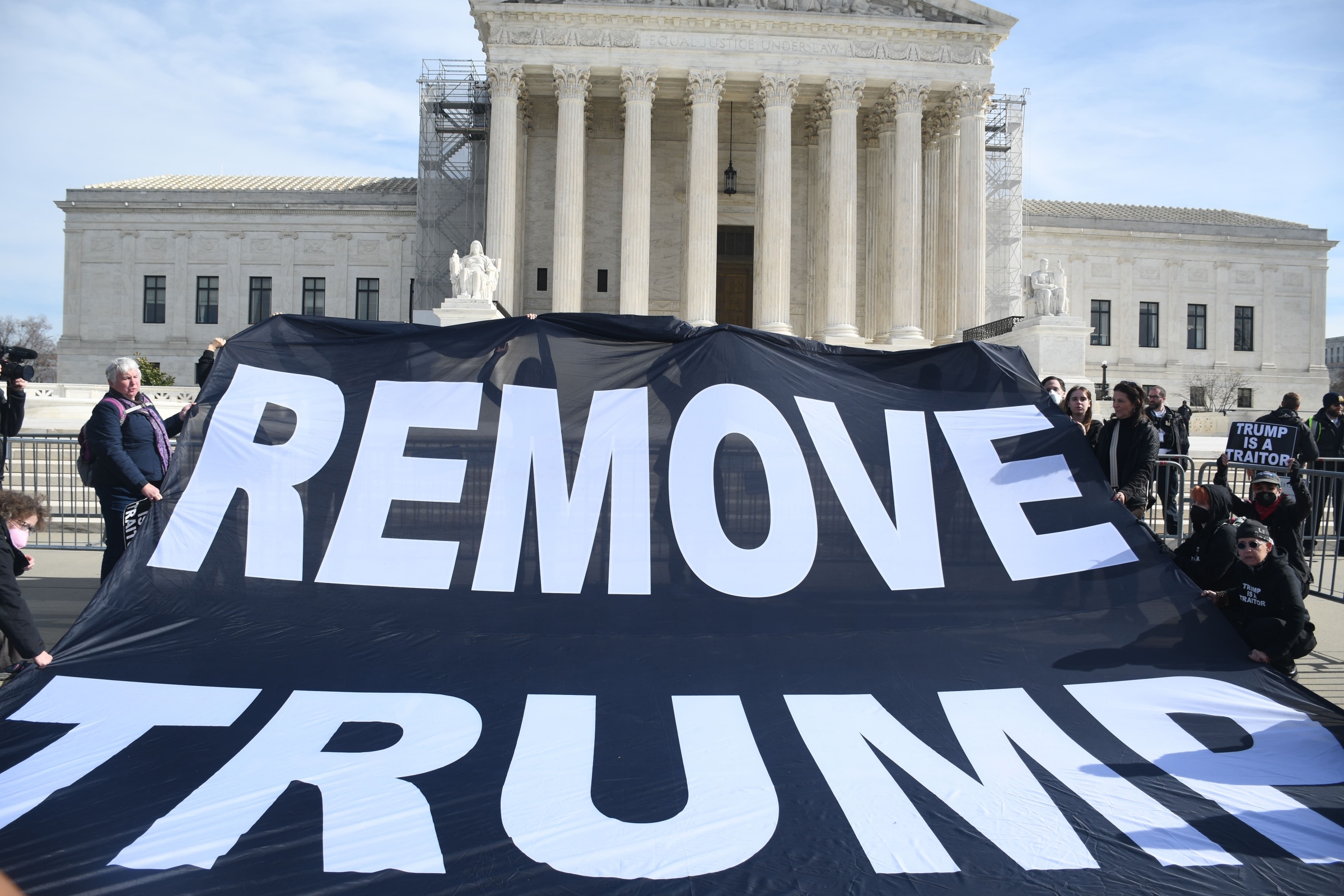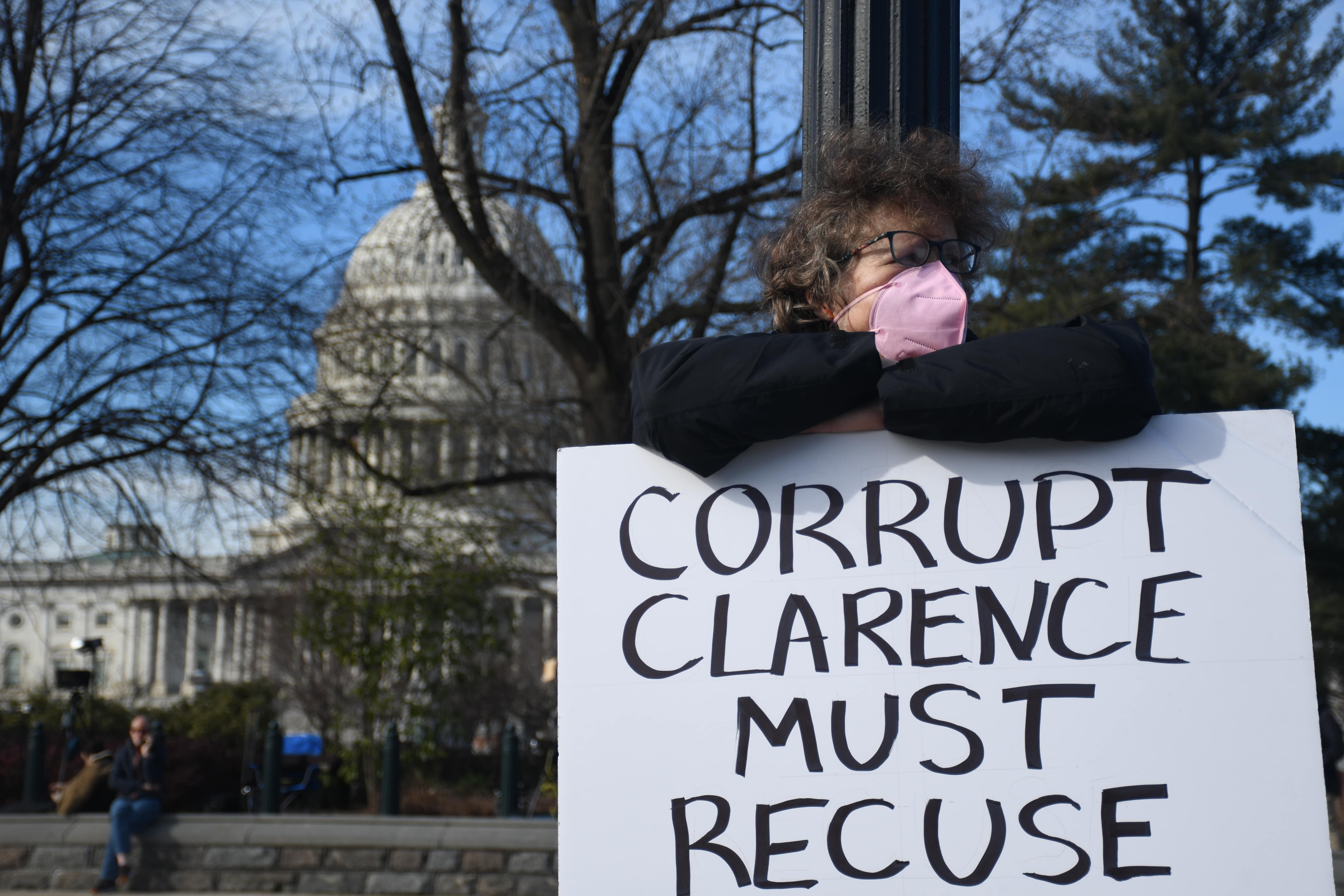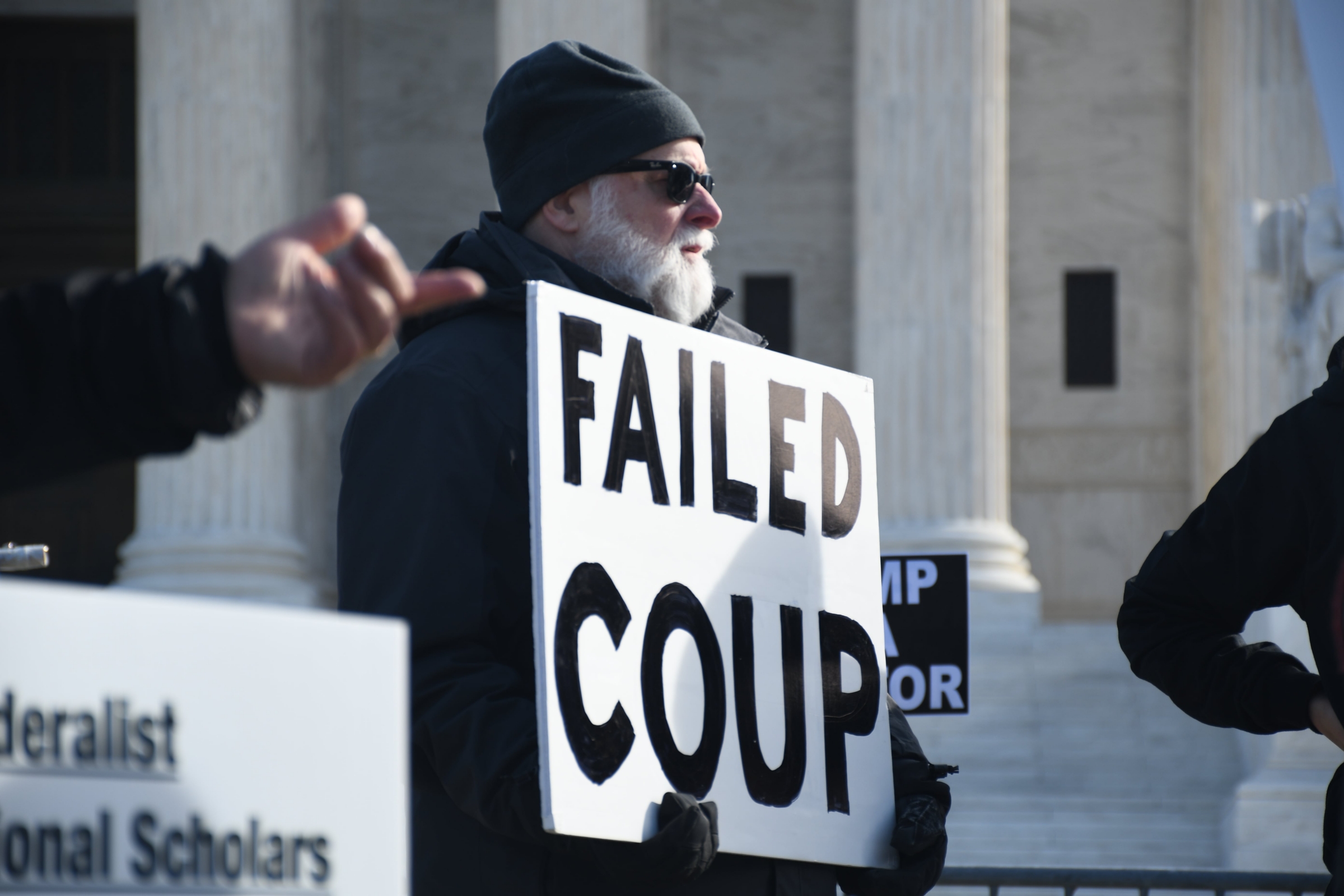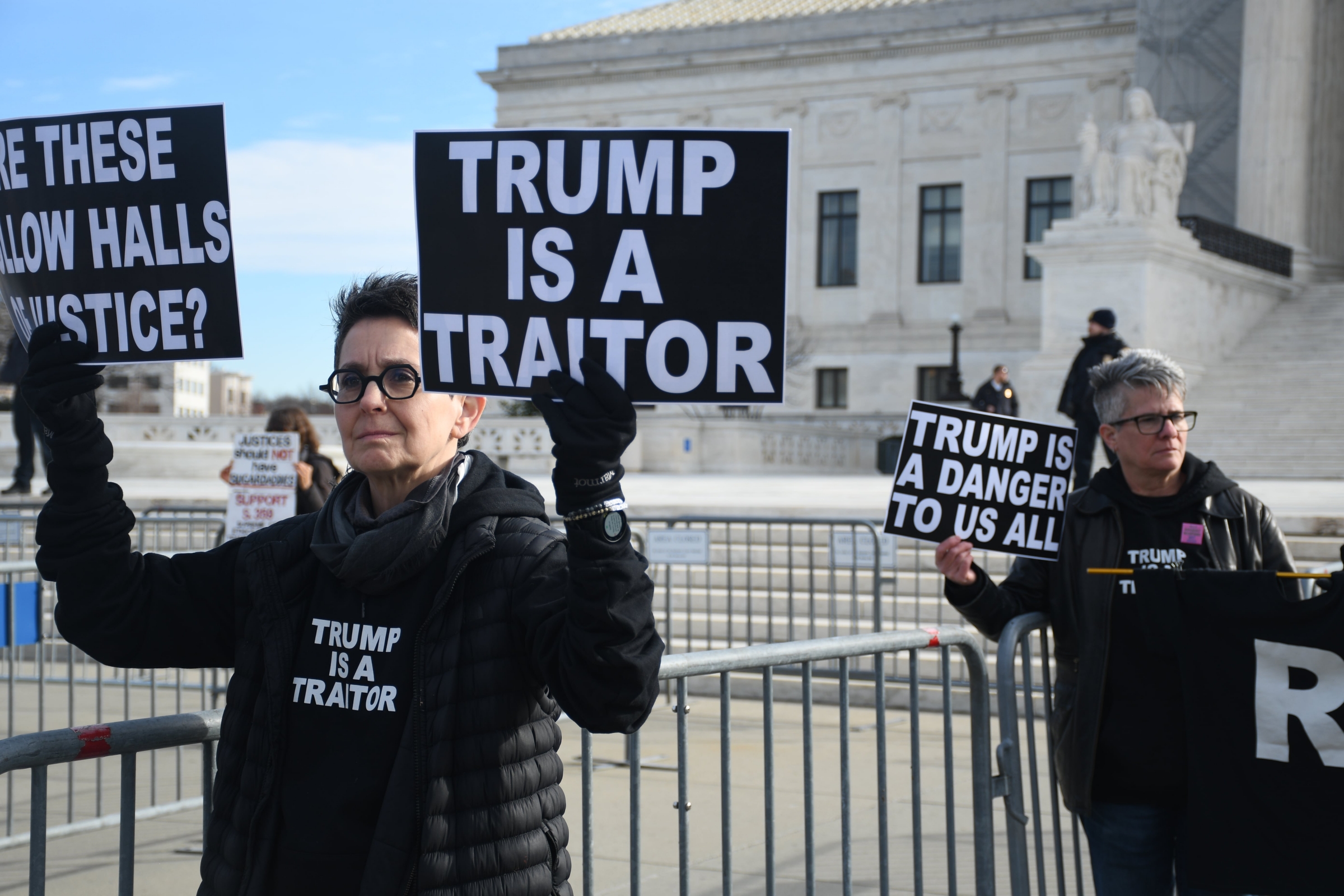WASHINGTON – Demonstrators stood in front of the Supreme Court Thursday, most of them making the case that former President Donald Trump should be kept off of the Colorado primary ballot.
Some people slept outside overnight to get a seat in the courtroom – a sign of the intense interest in a case with far-reaching implications for this year’s presidential election.
Inside, the Supreme Court justices heard oral arguments over whether Colorado properly interpreted Section 3 of the 14th Amendment to the Constitution to take Trump off the ballot because he engaged in insurrection on Jan. 6, 2021.
The main group of people outside the court, including two holding a “REMOVE TRUMP” banner, were a part of We Will Not Be Silent, an art and activism collaborative group.

One of the protesters, Lisa Fithian who said she has been protesting since the mid-1970s.
The New York resident said that Trump is an “extremely dangerous person” and she is trying to do everything she can to stop him from “shepherding in a fascist state.”
Fithian said it is unclear how the court will rule because of the politicization of the issue and Justice Clarence Thomas’s refusal to recuse himself from the case. Thomas’s wife, Virginia “Ginni” Thomas, attended the Jan. 6 rally next to the White House before other protesters stormed the United States Capitol and was involved in promoting efforts to overturn the 2020 election results.

If the court were to rule in-favor of Trump, Fithian said, it would signify that this court has no standing.
“The law is clear. If you remove the office of presidency from that violation, then what’s left?” Fithian said.
Nan LeClaire-Hirst, a 71-year-old Cape Cod resident with the same activist group said she has been politically active throughout her life in an effort to protect this democracy as best she can.
“I am here because I am frightened that Donald Trump will be allowed on the ballot and might possibly again become president of the United States,” LeClaire-Hirst said. “I’m fearful, because I believe that he is a person who wants to be a dictator, and will be.”
Richard Zipper, a Crofton, Maryland resident, said he doesn’t protest very often, but said that this case was too pivotal to miss.
Zipper held a sign outlining the main points of a paper by constitutional scholar and former U.S. Court of Appeals Judge Michael Luttig, which said that Trump clearly violated the 14th Amendment and that the disqualifications must be carried out.
Zipper said if the Supreme Court were to rule against Trump by upholding Colorado’s action, then he would believe that democracy in the United States is safe.
Zipper said his family members, like other veterans, sacrificed their youth and lives in World War II to protect the Constitution – something he believes could be in danger.
“I’m hoping the Supreme Court will have one-tenth of that courage to do what is right,” Zipper said.

Baltimore resident Jacob Blum was among dozens of other people who slept overnight outside the court for the chance to watch the argument in person.
While waiting to hear whether he had a seat – some people had been in line since Tuesday afternoon – Blum spoke about his long history of activism and the complexities of such a case.
He said that while he would prefer that the court would rule against Trump, he did worry about the repercussions of such a decision on future elections, that is, where certain some states could try to use similar logic to block President Joe Biden or other candidates from being on their ballots.
“The court really has to walk a fine line,” Blum said.
There were only a couple visible Trump supporters outside of the court before arguments began. Kelli Walk, and her daughter, Rylee Walk, from southern Virginia, spent most of the morning chanting “Innocent until proven guilty,” as they walked through the crowd of reporters and anti-Trump protesters.
“We showed up to support President Trump, of course,” Kelli Walk said. “We believe them taking him off the ballot is unconstitutional. Their basis is unfounded.”
Walk said she supports Trump because of his positions on the size of the government, the southern border and the economy.
“We would like [the justices] to read the Constitution as we do. If it doesn’t go our way, we will have more work to do.” Walk said.


You must be logged in to post a comment.